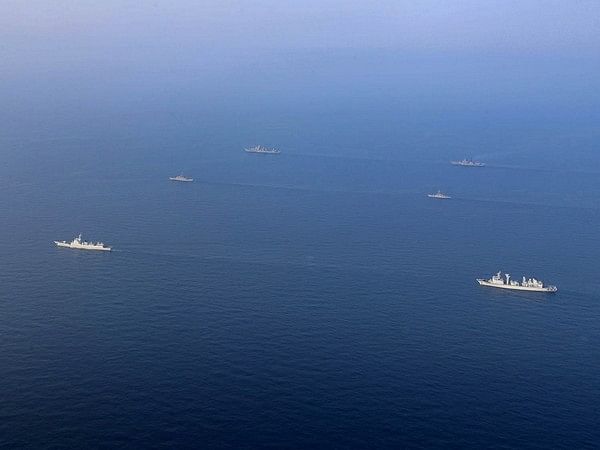Manila [Philippines], June 15 (ANI): China’s latest move to enforce new maritime regulations in the South China Sea has sparked significant international concern and condemnation. These regulations empower China’s coastguard to detain foreigners suspected of violating border management laws in disputed waters, a move that has raised questions about its legality under international law, Al Jazeera reported.
China asserts expansive territorial claims over almost the entire South China Sea, a stance contested vehemently by neighbouring countries such as the Philippines, Vietnam, Malaysia, and Brunei.
These nations have overlapping claims supported by international law, including a 2016 ruling by an arbitration tribunal in The Hague that declared China’s claims without legal basis.
The escalation in tensions comes amidst ongoing maritime confrontations between Chinese and Philippine vessels in contested areas. Chinese activities, including the militarisation of artificial islands and patrols by coastguards and other vessels, have intensified these disputes.
Incidents such as the use of water cannons against Philippine boats and collisions resulting in injuries to Filipino soldiers have further fuelled regional tensions, as reported by Al Jazeera.
The Philippines, in response to China’s new regulations, has taken legal action by submitting filings to the United Nations, asserting its own maritime entitlements under the UN Convention on the Law of the Sea (UNCLOS).
This move underscores Manila’s efforts to uphold its rights in what it terms the West Philippine Sea, part of the larger South China Sea region.
President Ferdinand Marcos Jr of the Philippines has described China’s actions as “very worrisome,” while Philippine military officials have vowed to protect their fishermen operating within their Exclusive Economic Zone (EEZ).
Despite Beijing’s regulations, which threaten the detention of foreign vessels in Chinese-claimed waters, Philippine authorities have urged fishermen to continue their activities without fear.
The international community, including the Group of Seven (G7) economies, has also weighed in on the matter. The G7 issued a statement criticising what it termed “dangerous” actions by China in the South China Sea.
The waterway is vital for global trade, with trillions of dollars worth of goods passing through annually, and is also rich in untapped oil and gas reserves, making it a critical geopolitical flashpoint, according to Al Jazeera.
China, however, defends its new coastguard rules as necessary for maintaining order at sea. Chinese officials argue that these regulations are aimed at safeguarding sovereignty and upholding maritime security in the region.
The Chinese defence minister has cautioned that there are limits to Beijing’s restraint in the face of perceived challenges to its territorial claims.
The United States and its allies have conducted freedom of navigation operations in the South China Sea, sailing warships through waters that China claims as its own.
These operations are viewed by Beijing as provocations and violations of its sovereignty, leading to occasional confrontations between Chinese and US naval forces, Al Jazeera reported. (ANI)
This report is auto-generated from ANI news service. ThePrint holds no responsibility for its content.



